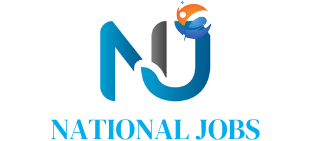Nursing Resume – Canadian Style
A strong nursing resume is your key to landing interviews in Canada’s competitive healthcare sector. Whether you’re a recent graduate nurse or an experienced RN, creating a Canadian-style resume will help you include and present your skills and achievements in a way that aligns with what Canadian employers expect.
This guide walks you through exactly how to build a nursing resume tailored for Canada—concise, professional, and focused on measurable impact. Whether you are just starting your nursing career or looking to advance into specialized roles, our resume builder and ready-to-use templates will give you a professional edge. With just a few clicks, you’ll have a polished nursing resume tailored for Canada’s healthcare market.
Why a Canadian-Style Nursing Resume Matters
Canadian employers expect a resume that is short, skills-focused, and achievement-oriented. Unlike CVs from other countries that can run several pages, Canadian resumes are typically 1–2 pages and highlight only the most relevant information.
When applying for nursing jobs in Canada, your resume should:
Focus on skills and achievements, not just job duties.
Leave out personal details like age, photo, marital status, or religion.
Show how your work improved patient outcomes or hospital efficiency.
Be tailored to each nursing position you apply for.
By following these rules, your nursing resume will meet Canadian standards and increase your chances of getting noticed by hiring managers.
Nursing Resume Format for Canada
The best way to format your nursing resume in Canada is to use a clear and professional structure that highlights your qualifications and makes it easy for recruiters to identify your strengths. A nursing resume is not just a list of jobs—it is a snapshot of your career progression, your clinical expertise, and your ability to deliver quality patient care.
Canadian employers prefer the reverse-chronological order format, which means you list your most recent job or clinical placement first, followed by previous roles. This structure shows your latest and most relevant nursing experience right away, which is especially important in healthcare where skills and certifications must stay up to date.
Also, your education and school background should be clearly listed under the “Education & Credentials” section, including your nursing degree, graduation year, and any clinical training placements. Highlighting your school achievements—such as honours, dean’s list recognition, or scholarships—can add credibility to your application, particularly if you are a recent graduate.
Key Sections to Include
Contact Information
Full name
City & province (e.g., Toronto, ON)
Phone number
Professional email
LinkedIn profile or nursing portfolio (optional)
Professional Summary
A 2–3 sentence overview of your nursing role, experience, and specialty.
Example:
“Registered Nurse with 5 years of experience in medical-surgical and ER units. Skilled in acute patient assessment, IV therapy, and team leadership. Recognized for improving patient flow and safety through evidence-based practice.”
Nursing Experience
Job title, employer, location, and dates of employment.
Use bullet points that highlight achievements:
“Reduced ER triage wait time by 15% through process improvements.”
“Provided direct care for 12+ patients per shift in ICU setting.”
“Implemented patient education sessions that increased medication compliance rates.”
Skills & Competencies
Divide into categories:Clinical Skills: patient assessment, wound care, infusion therapy, EHR (Epic, Cerner).
Certifications: BLS, ACLS, PALS, RN license (with province).
Soft Skills: communication, teamwork, stress management.
Education & Credentials
Example: Bachelor of Science in Nursing (BScN), University of British Columbia, Vancouver, BC – 2021
Add registration details (e.g., College of Nurses of Ontario – RN).
Optional Sections
Volunteer work (e.g., vaccination clinics).
Languages (French, Punjabi, Tagalog, etc.—valuable in Canadian healthcare).
Awards or research projects.
Tips for Writing a Nursing Resume in Canada
Keep it 1–2 pages: Employers want concise resumes.
Use action verbs: “Coordinated,” “Administered,” “Improved.”
Quantify achievements: Use numbers and percentages when possible.
Customize for each job: Insert keywords from the nursing job description.
Avoid graphics and tables: ATS systems may not read them correctly.
Use Canadian English spelling: e.g., “behaviour,” “labour,” “specialty.”
Free Canadian Style Nursing Resume Template
Here is a simple template you can copy and adapt for your own applications:
Professional Summary
Compassionate and dedicated Registered Nurse with [X]+ years of experience providing high-quality patient care in [healthcare setting]. Proven track record of improving patient outcomes, reducing readmission rates, and implementing evidence-based practices. Recognized for exceptional clinical skills, patient advocacy, and interdisciplinary collaboration. Seeking to contribute nursing expertise to [healthcare facility] in Canada with my nursing experience and commitment to patient-centered care and Canadian healthcare standards.
Core Nursing Skills
Professional Experience
- Provided comprehensive nursing care to [X] patients daily, achieving [X]% patient satisfaction scores consistently above hospital average.
- Reduced medication errors by [X]% through implementation of double-check protocols and staff education.
- Collaborated with multidisciplinary healthcare teams to develop patient care plans aligned with Canadian nursing standards and provincial health regulations.
- Administered medications, monitored vital signs, and performed clinical assessments while maintaining accurate documentation in electronic health records.
- Led quality improvement initiative that reduced patient falls by [X]% within [timeframe] through evidence-based interventions.
- Streamlined patient discharge process to reduce average length of stay by [X] hours while maintaining quality care standards.
- Mentored [#] new graduate nurses and nursing students; improved unit retention rate and enhanced professional development.
- Provided direct patient care in [specialty area], including wound care, pain management, and patient/family education on treatment plans.
Education
- [Notable achievements: Dean's List, Clinical Excellence Awards, Nursing Scholarships, GPA (optional in Canada)]. Completed [X] hours of clinical practicum across diverse healthcare settings including medical-surgical, pediatric, and community health.
Licenses & Certifications
Additional Information
- Languages: [Language 1 (Fluent), Language 2 (Professional)] — Essential for diverse patient populations
- Professional Memberships: [Provincial Nurses Association], Canadian Nurses Association (CNA)
- Volunteer: [Role] at [Healthcare/Community Organization] — Provided health education and screening services
- Continuing Education: [X] hours annually in evidence-based nursing practice, patient safety, and clinical excellence
- Eligibility: [Eligible to work in Canada / Open work permit / PR / Citizen] with valid nursing license in good standing
